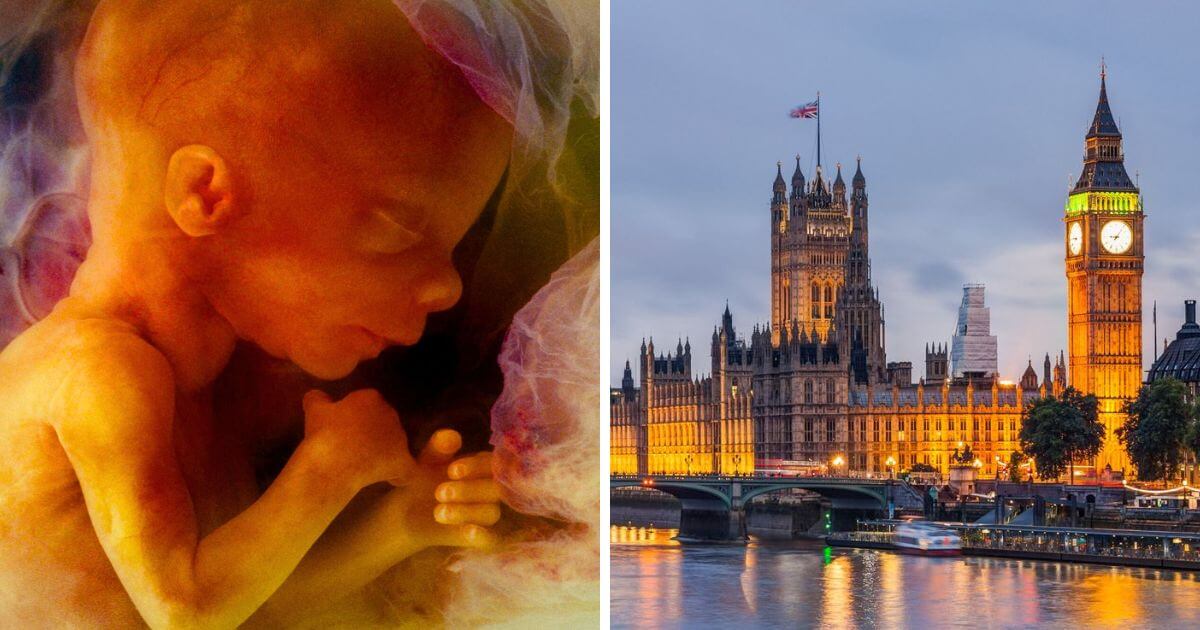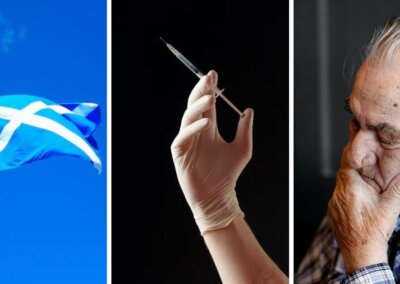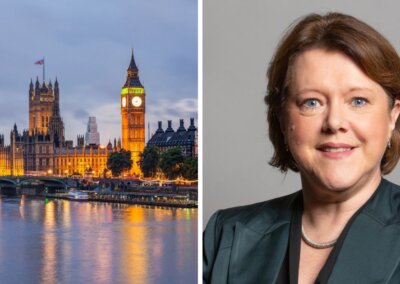A bill which intends to create a committee to provide evidence-based, scientific expertise on the sentience of unborn babies has been launched in the House of Lords.
This afternoon, as one of the three pro-life bills drawn in the Lords private members’ bills ballot earlier this month, Lord Moylan’s Foetal Sentience Committee Bill received its first reading.
Should the bill become law, it will create a committee that will operate on an ongoing basis as a source of evidence-based, scientific expertise on the sentience of unborn babies in the light of developments in scientific and medical knowledge. The Committee will then advise the Government on the formulation of relevant policy and legislation.
The launch of the bill is especially significant given the rapid developments in scientific knowledge relating to the development of the unborn child as well as developments in medical science since the Abortion Act was passed in 1967, and the abortion time limit was last changed over 30 years ago in 1990.
Increased evidence of foetal pain before the abortion limit
In 2020 John C Bockmann PA, a U.S. Army physician assistant and member of the Conner Troop Medical Clinic at Fort Drum, New York, and Dr Stuart WG Derbyshire, an Associate Professor in Psychology at the National University of Singapore, presented evidence to parliamentarians that unborn babies may feel pain from as early as 12 weeks’ gestation. The experts discussed their findings published in the Journal of Medical Ethics.
They believe there is “good evidence” that the brain and nervous system, which start developing at 12 weeks’ gestation, are sufficiently developed for the baby to feel pain before the current 24 week abortion limit.
The Government has acknowledged that unborn babies undergoing surgery for spina bifida from 20 weeks gestation on the NHS receive pain relief. Tragically, at this same gestation, babies undergoing abortionvia “surgical dilatation and evacuation (D&E)” are not routinely provided pain relief, nor are babies aborted after 22 weeks via “feticide, where potassium chloride is injected into the heart of the fetus”.
Tighter restrictions on animal foetal destruction than human
A 2020 All Party Parliamentary Group report summarised the extensive developments in medical science and academic research that point to the same conclusion: it is likely that babies in the womb can feel pain, possibly from as early as 12 weeks gestation, with some evidence suggesting even earlier.
The report also highlighted inconsistencies in UK law – currently, the killing of ‘protected animals’ from “two-thirds” of gestation is subject to tighter legal regulation than unborn humans being aborted from the same stage. Sections 1, 2(7) and 15A, and Schedules 1 and 2 of the Animals (Scientific Procedures) Act 1986 stipulate how animal foetuses must be killed in ‘humane’ ways, whilst no parallel legal provision exists for human foetuses.
The survival rate for extremely premature babies has doubled over the last decade, prompting new guidance from the British Association of Perinatal Medicine that enables doctors to intervene to save premature babies from 22 weeks gestation.
This leaves a contradiction in British law: in one room of a hospital, doctors could be working to save a baby born alive at 23 weeks, whilst, in another room of that same hospital, a doctor could perform an abortion that would end the life of a baby at the same stage.
Right To Life UK spokesperson Catherine Robinson said: “There have been rapid developments in scientific knowledge relating to the development of the unborn child since the Abortion Act was passed in 1967 and the abortion time limit was last changed over 30 years ago in 1990”.
“Experts are increasingly providing evidence that suggests that unborn babies may feel pain from as early as 12 weeks gestation, well before our current 24-week abortion limit. Such evidence should be taken into account in our abortion law and when the Government is developing policy”.
“The Government has acknowledged that unborn babies undergoing surgery for spina bifida from 20 weeks gestation on the NHS receive pain relief. Tragically, at this same gestation babies undergoing abortion are not routinely provided pain relief”.
“This Bill will create a committee that operates on an ongoing basis as a source of evidence-based, scientific expertise on the sentience of the unborn child, that will advise the government on the formulation of relevant policy and legislation”.












